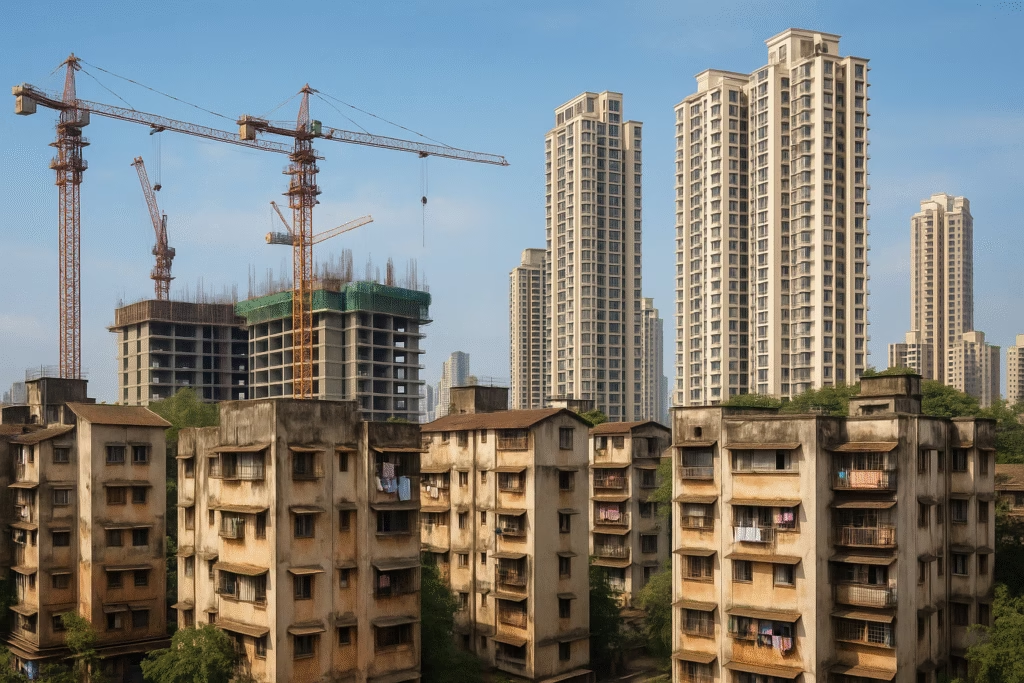Introduction
Redevelopment of old and dilapidated buildings, especially in cities like Mumbai, is a complex process involving multiple stakeholders—society members, managing committees, developers, government authorities, and legal/technical experts. Amidst this, the Project Management Consultant (PMC) acts as a key player ensuring transparency, technical diligence, and compliance.
As per the Model Bye-laws of Co-operative Housing Societies in Maharashtra (Bye-law No. 77 to 79), appointing a PMC is not just a recommendation but a structured step in the redevelopment process. Failure to do so can result in disputes, project delays, or even legal nullification.
Role of PMC in Redevelopment
A PMC is usually a technical firm or an individual with architectural, legal, and project management experience. Their primary role is to protect the interests of the society and its members during the redevelopment process.
Functions of a PMC:
- Feasibility Study – Assessing whether redevelopment is suitable and viable for the building.
- Preparing Project Report – Detailing timelines, cost estimates, scope of work, etc.
- Drafting Tender Documents – Creating a fair and open developer selection process.
- Assisting in Developer Selection – Based on financial, technical, and legal due diligence.
- Agreement Drafting Support – Ensuring the Development Agreement and Power of Attorney protect society interests.
- Monitoring Construction – Verifying that work is done as per approved plans and timelines.
- Liaison with Authorities – Helping with RERA registration, municipal clearances, and occupancy certificates.
Legal Implications of Not Appointing a PMC
When societies skip PMC appointment or do so without following proper procedures:
- Bye-law violations occur, especially in member participation and resolution requirements.
- Transparency is compromised, leading to allegations of favoritism or corruption.
- Legal enforceability of agreements may be questioned.
- Member rights can be infringed, triggering disputes and litigation.
- Courts may stay or cancel redevelopment contracts if procedural flaws are found.
Bombay High Court View on PMC Appointment
The Bombay High Court has consistently upheld the importance of procedural transparency and PMC involvement. Here are some landmark rulings:
1. Jayantilal K. Mehta v. The State of Maharashtra & Ors. (2013 SCC OnLine Bom 1740)
Key Points:
- The Court quashed a redevelopment agreement signed without taking consent of all members and without PMC appointment.
- Held that redevelopment decisions must be taken in a General Body Meeting with clear transparency.
- Warned against managing committees acting unilaterally.
“Any step taken by the managing committee in deviation of due procedure, including absence of PMC consultation, is liable to be set aside.”
2. Ravindra D. Dholakia v. State of Maharashtra & Ors. (2018 SCC OnLine Bom 1303)
Key Points:
- Petitioners challenged the appointment of a developer without PMC recommendation.
- The Court reiterated that PMC is essential for ensuring fair evaluation and equal opportunity to bidders.
- Declared that member awareness and PMC involvement are necessary to validate the redevelopment process.
3. Suryodaya CHS Ltd. v. The State of Maharashtra & Ors. (W.P. No. 3083 of 2018)
Key Points:
- The society was challenged for awarding redevelopment rights without proper bidding and without engaging a PMC.
- Court declared the developer appointment as null and void.
- Reaffirmed that a PMC must be appointed through a general body resolution, and their role in advising the society cannot be bypassed.
Bye-laws & Legal Framework
As per the Model Bye-laws of Co-operative Housing Societies in Maharashtra:
- Bye-law No. 77(a)(iv): Mandates appointment of a PMC in a general body meeting.
- Bye-law No. 78(a): PMC is to assist in preparing project feasibility and in appointing the developer through a transparent process.
- Bye-law No. 79(a): Developer finalization must happen only after PMC evaluation and member approval.
Conclusion
Redevelopment is often a once-in-a-lifetime opportunity for housing societies, especially in cities like Mumbai where land values are high and space is scarce. However, the success or failure of such projects depends heavily on how transparent, inclusive, and technically sound the process is.
The Bombay High Court has made it clear: PMC appointment is not a formality—it is fundamental. Societies that bypass this step risk legal nullification of agreements, loss of member trust, and prolonged litigation.
Summary Table
| Aspect | With PMC | Without PMC |
|---|---|---|
| Feasibility Study | Professionally conducted | Often skipped or developer-driven |
| Developer Selection | Transparent, competitive | May lack fairness |
| Legal Compliance | Ensured | High risk of violations |
| Court Support | Favorable | Likely negative |
| Member Trust | High | Low |

